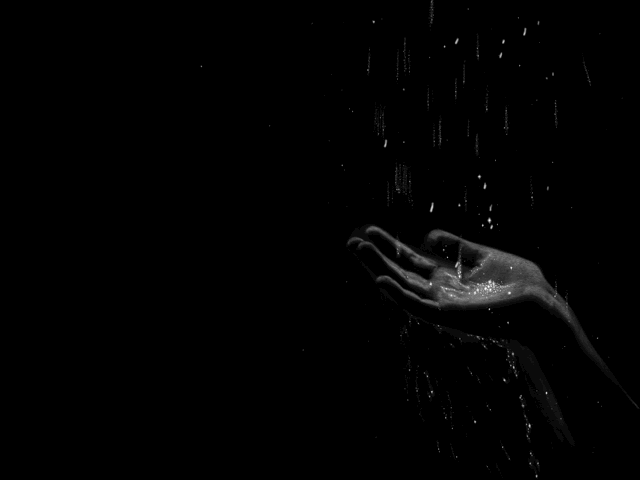The chorus of nightfall rang out through the valley.
Thud.
It had been a vineyard, once upon a time, before the greens turned to ochre, and the ochres turned to grey.
Thud. Thud.
The vines didn’t reach for the sun anymore; they cowered, as its rays carved a pathway through the earth each day, charging from East to West. The winemakers daughter sat silently in the cellars, listening to the stars falling from the sky. Thud. Her fingers flitted over the pages of seemingly empty books as if they were a piano, tracing tiny constellations of bumps and lines, composing intricate stories of the cosmos. She read about the Big Bang, and the moment that kickstarted life, in every variation. The melody of energy, intertwining and weaving into lifeforms, a string of accidents exploding into planets and laughter and autumn leaves.
She pressed her palm to the cellar doors and waited for the heat to dissipate. She could feel the grains of the wood retreating, deflating, sighing in relief as the oranges turned to grey. Any moment now she could go about her nightly duties, re-planting the Earths energy, a secret only shared with the moon and her army of souls. She took an oven mitt from a hook between the stones and turned the knob until it clicked. The sound reverberated through the valley, bouncing endlessly from the barren lands. It was still warm outside. Normally by now, the temperature would have dropped. The ozone holes must have been close today, the hills must be alight beyond the ranges. She wasn’t worried about flames in the vineyard anymore though, there was nothing left to burn here — nothing but herself.
Her feet burned as she climbed the stairs, each stone clinging to the heat of the day just passed. Some of them had cracked and warped in the years of the flares. Most things that couldn’t burn had split, writhing in the torture, begging relief from the infernos. The winemakers daughter emerged from the crush house, trailing a line of yarn behind her, looped around the door knob, and then around her wrist. She wore the midnight moon, and nothing else. She didn’t care for the gazes of the sighted, for nobody came anymore. They assumed that everywhere the sun went, the souls went too. Most did, in the beginning; her mother first, her brother next, her dad held on as long as he could. But, he was as good as gone for months before, most of his soul had burnt away with the grape vines, twisting out into the cosmos with what was left of his hopes and dreams. One day he just walked out into the daylight without a word — not even his bones remained. It was just her and the star fields now.
She could see things that others couldn’t, though she couldn’t see that which they do. That was the catch — to heighten your senses, you have to lose one. It’s only then that you can tune in to the galaxies, and hear what they’re trying to say. She could feel the universe shifting around her, the tiny bursts of energy that came with life and death and everything in between. She could follow the traces of stardust in whichever form they chose to take — a leaf, a tree, a man, a lover. She could recite the chords his stardust played in the galaxies that surrounded her. The low tones of his scars, the peaks of his eyes, and the melodies in his laughter. That’s all we are, after all — stardust carved into smiles and heartbeats, bones and skin. She could still feel the portions of that stardust they shared that made their souls collide again and again. Soul mates in every life form, in every life time, in every galaxy. It coursed through her veins and begged her to find him again. Though, she knew he was in the sky now, clustered with the others lost in the flares.
She wandered the rows of the vineyard, craning her senses for a taste of the energy. She knew stars had fallen that dusk, she’d heard them, the chorus growing ever stronger with every sunset that had passed. Every night the star fields filled with more rocks than she could believe, like every star was plummeting to Earth one after the other. She couldn’t figure out why the showers were growing with such intensity. One theory fell to overcrowding, the flares had simply caused too many deaths and the skies were spilling over, pushing the stars back down before their time. The other fell to purpose, Mother Earth was calling all of her souls home in a desperate plea to save her Earth. Either way, she knew the fallen stars energies mimicked that of the humans she had loved. There were people trapped inside those rocks, ready to blossom once again. The sky was a graveyard of the souls of the dead, falling back down to Earth to start this life all over again.
She caught the trace of one of the fallen, rolling its threads between her finger tips, letting it lead her to the crater. As she walked, she thought of something that her dad used to say when she was younger, when they’d bask in the sunshine during harvest, sipping sweet nectar from the barrels untapped. He would say that the only stars that we can see are the dead ones, firing up, ready for their descent. If she could see, she’d know that the sky was alight like never before. No longer just a spattering — much, much more than just constellations and Milky Ways — the stars shone in blankets, wrapped around the night. Auroras weaved between them, blues, greens, purples, like flags waved against the sky, celebrating the night. The moon shone from somewhere within the weavings, cracked down the middle, broken, stray pieces of its surface floating close by. The Earth wasn’t all that the sun had hurt. The whole universe needed a remedy.
Waves of whispers pulsed through the darkness as she approached the night’s first crater. She knelt and ran her hands through the dust, tasting the starlight with her fingertips. There was a lightness to this energy, it was refreshing, like that second when cold lemonade first floods your lips in the Springtime. She whispered sweet nothings into the soil as she buried the tiny meteorite, forcing it down into the Earth where the grape vines once grew. The energy sighed, and settled into the Earth. She felt it pull up the sheets on its old childhood bed, and settle into the familiar grooves of home. She had felt it time and time again, but it never got old. The more she felt the star hearts settle, the more she believed that maybe she would feel that once again, too.
It never felt strange to her — planting the star fields. It was familiar. A routine. There was a time when she’d of basked in the sunlight, helping her father plant dormant, bare-root grape vines in the early Spring. That’s all she was doing now — planting dormant souls in empty soil. Those memories kept her company during the nights alone. Though, she never felt lonely. She missed her father, her friends, her love, but each night as she walked across the star fields, she felt as though she walked amongst friends.
As she pushed herself back onto her feet, she caught the trail of another. She bundled the wool around her wrist and pulled it tight against the crush house door, making sure she was safe before she strayed further through the fields. This energy was further than usual, but something about it pulled her onwards, past the whispers of closer meteorites, through the rock boundary walls, and toward the ranges. She felt the wool ball shrinking smaller than it had before, but the energy grew stronger, closer, familiar. It swam between the strands of her hair and curled around her finger tips. It traced the curve of her cupids bow, then tasted her single tear as it drew patterns on her ashen cheek.
His starlight strummed at the strings of the moonlight, playing a melody she’d heard one thousand times before, in one thousand different ways. Tiny pieces of dormant stardust rallied within her heartbeat, as it quickened with every step closer.
She dropped to her knees at the border of the crater, and felt the embrace of his soul, as he lingered about the star. She felt her own soul reach out and touch his, and her fingers found the meteorite. In the holes of the fallen star, she found the scars she’d known, so long ago, and in the peaks she found her lovers eyes, and arms and cheeks and grin. As she let out a small laugh, in relief, disbelief and joy; she heard the familiar melodies of his, too.
Normally, she would bury the stars where they fell, but this time she held it close, as she navigated her way back to her star fields. Midnight tolled and the darkness reached its peak, as cloud cover grew and covered the star-blanketed sky. The Earth fell black, though the girl knew no different. To her, it was always black, whether night or day, clear or cloudy.
What she couldn’t see, however, was the glow of her star fields. As the darkness pushed down onto the soil, the energy painted the vineyards gold, twisting streams of vapour into the sky. Each mound had its own vine of energy, reaching, twirling. Those that were planted long ago rose further into the sky — todays buried meteorite coughed sparks into the fresh, night air. Only the rock nestled into her chest behaved differently — vines of golden mist snaked around the girl, twisted in her hair, wrapped around the small of her waist, unconcerned with reaching the night sky, only her.
The girl walked on through the field of vines — rows and rows of energy twisting into the sky, rising from the Earth where the grape vines once grew. Her army of souls standing to attention.
She descended the steps, cooler now, though still bucked and cracked, and pushed through the door. There, inside, stood a barrel, empty, upturned, full of soil, a tiny trowel pushed upright into the dirt.

